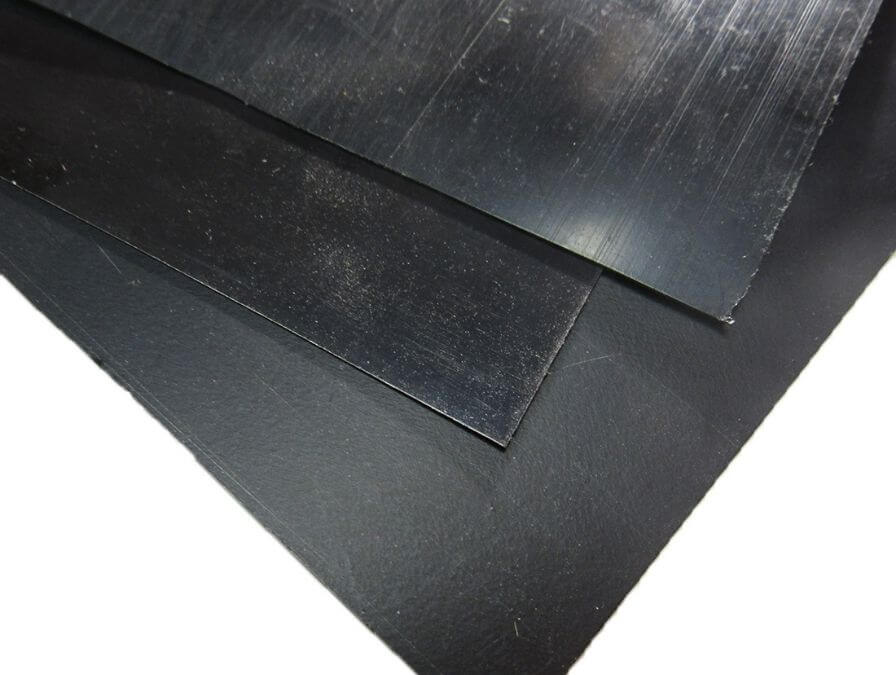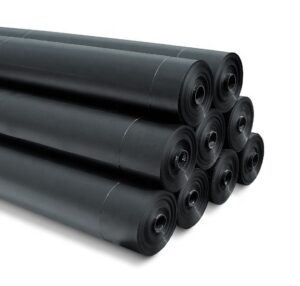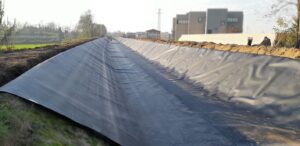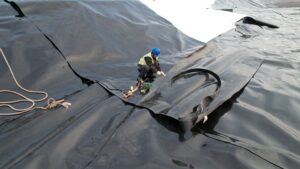What is pp geomembrane
PP geomembrane, full name Polypropylene Geomembrane, is a film made of polypropylene material, used for anti-seepage, isolation and protection applications in civil engineering and environmental engineering. Such membranes typically have excellent waterproofing and impermeability properties, as well as good chemical stability and mechanical strength. The main features and uses of PP geomembrane include the following:
Anti-seepage: PP geomembrane is widely used in various projects to prevent moisture, chemicals or waste from penetrating into the soil or underground structures. This anti-seepage effect is important for environmental protection, water resources management and waste disposal.
Soil isolation: PP geomembrane can be used to isolate different soil layers to prevent hybridization or mutual influence of different soil layers. This is important for soil stabilization, environmental protection and pollution control.
Waste treatment: PP geomembrane is often used in landfills as an anti-seepage layer on the bottom and side walls to prevent waste from leaking into groundwater or soil.
Water resources management: PP geomembrane can be used in reservoirs, ponds, channels and hydrological projects to reduce water waste and protect groundwater quality.
Soil reinforcement: PP geomembrane can be used to reinforce soil and improve the soil’s bearing capacity and stability. This is very useful in projects such as road construction, airport runways, railway embankments, etc.
Environmental Protection: PP geomembranes can be used in a variety of environmental protection projects, including soil pollution cleanup, waste storage facilities, and environmental remediation.
PP geomembrane is usually a flexible film that is chemically and weather-resistant and can adapt to various weather conditions and environments. It also has certain tensile strength, puncture resistance and anti-aging properties to ensure its long-term reliability in engineering projects.
In short, PP geomembrane is an important material used for anti-seepage, isolation and protection in civil engineering and environmental engineering, helping to protect the environment, maintain water resources and improve the sustainability of infrastructure.

Specifications of pp geomembrane
The specifications of PP geomembrane (polypropylene geomembrane) can vary based on the needs of the specific project, but here are some common specifications and characteristics for reference:
Thickness: The thickness of PP geomembrane is usually between 0.5 mm (20mil) and 3.0 mm (120mil). Different projects may require different thicknesses of geomembrane, with thicker membranes generally being more durable.
Width: PP geomembrane is usually supplied in rolls and its width can vary from 2 meters (6.6 feet) to 7 meters (23 feet). The specific width can be customized according to project requirements.
Length: The length of geomembrane rolls is usually between 50 meters (164 feet) and 100 meters (328 feet), and the specific length can also be customized according to project requirements.
Color: PP geomembrane is usually black, but other colors are available as needed for specific projects.
Tensile strength: The tensile strength of a geomembrane is usually expressed in Newtons/meter (N/m) or pounds-force/foot (lbs/ft). The specific value varies according to the thickness and quality of the geomembrane.
Puncture resistance: PP geomembrane usually has a certain puncture resistance to prevent sharp objects from penetrating the membrane.
UV stability: Some PP geomembranes are UV stable to resist the effects of ultraviolet radiation and extend their service life.
Environmentally friendly properties: Some PP geomembranes are environmentally friendly materials, do not contain harmful substances, and are suitable for environmentally friendly projects.
Please note that these specifications are general guidance and actual PP geomembrane specifications will vary based on specific project requirements, geographic location and supplier availability. When selecting a PP geomembrane, it is important to discuss it with the supplier and engineer and ensure that the specifications and characteristics are suitable for the needs of the project.
pp geomembrane price
The price of PP geomembrane varies depending on many factors, including thickness, size, quality, supplier and market demand, etc. Here are some general price guidelines, but please note that these prices may vary in different regions and over time:
Thickness: The thickness of the PP geomembrane is a major factor in the price. Thicker geomembranes are generally more durable, but also more expensive. Thin geomembranes are generally less expensive and suitable for light-duty applications.
Size: The size of the geomembrane will also affect the price. Custom-sized geomembranes are typically more expensive than standard sizes.
Quality and Specifications: High-quality PP geomembranes typically come at a higher price, especially those that meet specific industry standards and specifications. Projects may require geomembranes that meet specific standards, which may affect the price.
Market and Geography: Market prices may vary in different regions. Some places may have more suppliers and competition, lowering prices, while other places may have fewer supplies and relatively higher prices.
Suppliers and Brands: Prices will vary between suppliers and brands. Well-known brands may offer higher prices, but also offer higher quality assurance.
Quantity: Buying large quantities of geomembranes can often result in more competitive prices, as suppliers may offer wholesale discounts.
Special Requirements: If the project requires special properties such as UV stability, fire resistance or environmental certification, this may affect the price.
The best course of action is to contact a local geomembrane supplier to get a quote and compare prices and product features from different suppliers. This ensures you get the best price and quality PP geomembrane for your specific project needs. Again, remember that the quality and specification of the geomembrane is critical, especially in projects that require long-term seepage control and environmental protection.
Author
-

Founded in 2002, Tinhy's team focuses on the manufacturing, marketing, installation, application and research and development of geosynthetic materials.
View all posts





